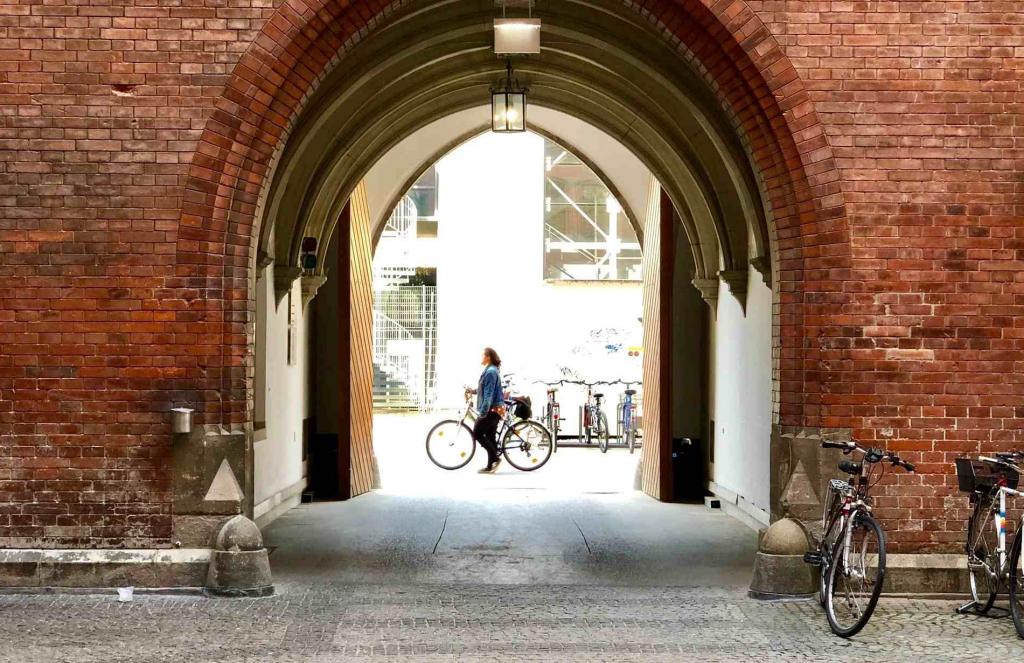Thessaloniki gets ready for its metro launch in November
The underground rapid transit lines have been under construction for almost two decades due to various project delays
 TheMayor.EU logo
TheMayor.EU logo 
According to the head of the Mobility Department, Georg Dunkel, with the highways, bike commutes can be comparable to cars
The Bavarian capital wants to construct a massive, city-wide cycling expressway system by 2025
Recently, the local government in Munich announced a new cycling infrastructure strategy, that will see the construction of six cycling expressways in the city, as well as a bicycle ring road around the centre. This massive expansion of the cycling infrastructure came after a 2019 citizen-led petition and a feasibility study from last year.
The city council approved the construction plans, with a lot of the projects scheduled to start this year. According to a statement by the city, the majority of the development will be finalised by 2025.
Munich’s Deputy Mayor Katrin Habenschaden expressed her support for the project, which will hopefully put the Bavarian capital on the map for cycling. With the ambitious project, reminiscent of the cycling expressway system in Hamburg, she expects Munich to become like Utrecht and Copenhagen in terms of sustainable mobility. As she put it: “Whoever sows cycle paths will reap cyclists.”
The first route that development efforts will focus on leads from the heart of Munich to the nearby commuter town of Markt Schwaben. The final route will be nine kilometres long and, according to the city, their new cycling highway standard calls for it to have a minimum width of 2.3 metres.
However, authorities have said that this route would have a width of 3 metres in every direction which will make the route both safe for higher speeds and more commuters. The city projects that it will carry some 6,100 daily users.
The Head of the Mobility Department, Georg Dunkel, was quoted in a press release, saying: “A high-speed cycle connection is a serious alternative to the car. Comparable distances can be covered safely and very quickly by bike. All cyclists get to their destination safely and comfortably and also contribute to the turnaround in traffic and climate protection.”

The underground rapid transit lines have been under construction for almost two decades due to various project delays

Now you can get your wine in Talence by paying directly in Bitcoin

That’s because the state has to spend money on updating the railway infrastructure rather than subsidizing the cost of the popular pass

Rethinking renewable energy sources for the urban landscape

The examples, compiled by Beyond Fossil Fuels, can inform and inspire communities and entrepreneurs that still feel trepidation at the prospect of energy transition

Now you can get your wine in Talence by paying directly in Bitcoin

The 10th European Conference on Sustainable Cities and Towns (ESCT) sets the stage for stronger cooperation between the EU, national and local level to fast track Europe's transition to climate neutrality.

At least, that’s the promise made by the mayor of Paris, Anne Hidalgo

The underground rapid transit lines have been under construction for almost two decades due to various project delays

At least, that’s the promise made by the mayor of Paris, Anne Hidalgo

Hostal de Pinós is located in the geographical centre of the autonomous region

Despite its church-y name, the district has long been known as the hangout spot for the artsy crowds

Urban dwellers across the EU are having a say in making their surroundings friendlier to people and the environment.

Forests in the EU can help green the European construction industry and bolster a continent-wide push for architectural improvements.

Apply by 10 November and do your part for the transformation of European public spaces

An interview with the Mayor of a Polish city that seeks to reinvent itself

An interview with the newly elected ICLEI President and Mayor of Malmö

A conversation with the Mayor of Lisbon about the spirit and dimensions of innovation present in the Portuguese capital














